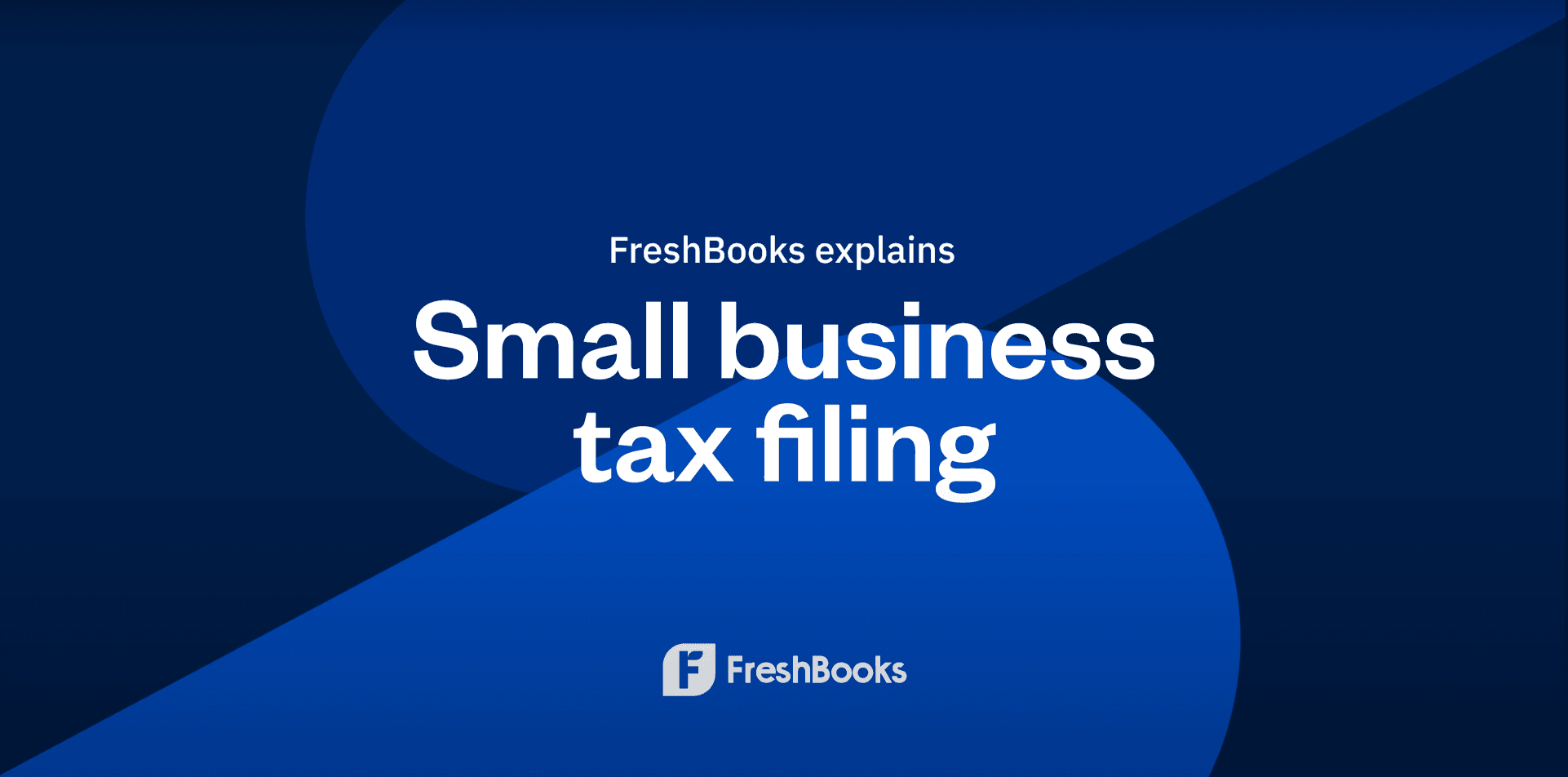
🌟 KEY TAKEAWAYS
Landlords with income higher than £12,570 per tax year are obligated to pay rental income tax.
Depending on overall income, rental income tax rates vary between 0% and 45%.
Allowable expenses can help you lower your rental income, tax band, and overall tax bill.
Rental income taxes can add up and be confusing, but FreshBooks has all the information for tax rates, allowable expenses, deadlines, and more below.
How Much Tax Do You Pay On Rental Income?
As a landlord, you’re responsible for paying taxes on income generated from your rental properties. Your rental income is added to your other forms of personal income for a given tax year, such as from your job or your business.
The tax rate and thresholds for your rental income are the same as for your personal income, which means you’ll pay rental income taxes at the same as your personal income taxes. You don’t have to pay tax on rental income unless your total income for the tax year is less than the personal yearly allowance, £12,570.
Allowable Expenses for Rental Income
In some cases, you can deduct expenses from your total rental income to calculate your taxable rental profit. The only caveat is that these expenses must be exclusively for the purposes of renting your property. If you buy a non-residential property, you can claim expenses for the interest on the mortgage.
Allowable expenses may include:
- General maintenance and repairs, not including upgrades or improvements
- Water rates, council tax, gas, and electricity
- Insurance
- Costs of household services
- Letting agent and management fees
- Relevant legal fees
- Accountant’s fees
- Property advertising expenses
- Service charges
Tax On Rental Income From Multiple Properties
If you earn rental income from several properties, all properties can be considered one property business. This allows expenses from one property to be deducted from the income on another.
Keep in mind that if you own and earn income from more than one property as well as from your shares of a separate property rental business, they’ll be calculated as separate rental businesses. In other words, you can’t offset expenses or losses from your personal rental property against profits from a property owned by your property rental business.
How Rental Income Tax Is Calculated
To calculate your profits, loss, net rental income, and tax payable, start by adding all your gross rental income together. Then, add your allowable expenses together, and subtract that amount from your gross rental income. The resulting number represents your net rental income, which is also the total taxable profit.
This formula looks like this:

Tax Rate on Rental Income
Your tax rate depends on which tax band your net rental income and other employment, self-employment, pension, or other allowances place you in.
For example, if your net rental income is £10,000 and you earn £45,000 between employment and allowances for a total of £55,000, you’ll pass the £50,271 threshold for the higher rate. You’ll pay 20% on income up to £50,271 and 40% on the remaining £4,729.
Income Tax Band | Taxable Income 2023 â 2024 | Income Tax Rate 2023 - 2024 | Taxable Income 2024 - 2025 | Income Tax Rate 2024 - 2025 |
|---|---|---|---|---|
Personal Allowance | Up to £12,570 | 0% | Up to £12,570 | 0% |
Basic Rate | £12,571 - £50,270 | 20% | £12,571 - £50,270 | 20% |
Higher Rate | £50,271 - £125,139 | 40% | £50,271 - £125,139 | 40% |
Additional Rate | £125,140 and above | 45% | £125,140 and above | 45% |
Declaring Losses on Rental Income
If you experience rental income loss, you can carry it forward to save on rental income taxes the following tax year.
For example, if you received a gross rental income of £10,000 but had £12,000 of claimable expenses, you’d record a £2,000 loss for the given year. You can’t offset this loss against other income streams, such as employment or pension, but you can use it on future rental profits.
If you earned a taxable rental profit of £6,000 the next year, you can deduct the £2,000 loss from the year prior. Instead of owing taxes on the full amount, you’ll only owe taxes for the £4,000 remaining after deductions.
How to Avoid Paying Tax on Rental Income
Although it’s not always possible to avoid paying tax on rental income altogether, some strategies allow you to leverage a lower tax rate. These include:
- Claim all expenses: Claim all eligible expenses to reduce your rental profit, such as insurance and home office expenses
- Form a company: Establishing a company for your rental properties can allow you to pay corporate tax instead of individual tax and take advantage of other tax benefits
- Transfer assets to your spouse: Take advantage of a spouse’s lower tax band and rental income property allowance
If you find taxes a bit overwhelming, check out the video below and learn how FreshBooks can give you a hand with tax preparation.
When Do I Pay Tax on Rental Income?
You’re obligated to pay taxes on rental property income profits each tax year, which runs from April 6th to April 5th of the next calendar year. The deadline to pay income tax is January 31st of the following year. If you’re filing a tax return for the 2024/2025 year, for example, your payment deadline will be January 31st, 2026. Even if you haven’t received income yet for the given period, you should use provisional figures and indicate in your filing that you’ve done so.
Tax on Selling a Rental Property (Capital Gains Tax)
When you sell a rental property, you’ll pay capital gains tax on the sale. Since it isn’t a sale of your primary residence, which has separate tax rules, the rental property is treated as any other asset. Those in the basic rate tax band pay an 18% capital gains tax rate, and those in a higher tax band pay 28%. For any rental property sales after October 26, 2021, you have 60 days to report and pay capital gains tax.
Buy-To-Let Mortgage Tax Relief
As of 2025, landlords must pay income tax on the entirety of their income but also receive a 20% mortgage relief tax credit based on their mortgage interest payments.
Previously, landlords paid 20%, 40%, and 45% at respective basic rate, higher-rate, and additional rate tax bands. Since all landlords now pay 20%, higher tax bands may pay significantly higher interest costs. Depending on your income sources, you can also be forced into a higher tax band since you’ll have to declare income that was used to pay the mortgage.
Making Tax Preparation Easy With FreshBooks
As a landlord, it’s important to stay on top of your rental property and associated rental income taxes to ensure you’re making the most of your investment.
With FreshBooks accounting software, you can easily keep track of your rental income, costs, and allowable expenses. Not only can you take advantage of all applicable tax deductions, but you’ll be able to spend less time on bookkeeping and more on running your rental properties.
Eager to get your finances and taxes in order? Try FreshBooks free and get started today.
FAQs About Tax on Rental Income
Between tax deadlines, tax rates, and calculating your rental profit, tax on rental income can get confusing. Check out the top questions about tax on rental income below:
Do I need to tell HMRC about rental income?
Landlords must notify the HMRC if they have taxable rental income from their rental property by October 5th of the following tax year. Depending on the total rent and profit you receive as well as your other income, the HMRC may require you to report your profits on a Self Assessment tax return.
What happens if you don’t declare rental income to HMRC?
If the HMRC believes that you’ve failed to report taxable rental income, they can assess previously provided tax information and search for indicators of income tax liability. Under the Let Property Campaign, the HMRC can charge penalties up to 100% for rental property in the UK and 200% for offshore rental income. Exact penalties vary depending on circumstances.
How far back can HMRC go for rental income?
According to the law, the HMRC is entitled to go back 20 years for rental income.
How does the 20% tax credit work for landlords?
Previously, landlords could deduct mortgage expenses from their rental income to reduce their tax bill. Instead, all landlords with a buy-to-let mortgage receive a 20% tax credit based on their mortgage interest payments.
Do you pay 40% tax on rental income?
Depending on your income, the tax rates for rental income vary between 0% and 45%. If your income is about £50,270 and below £150,000, you’ll pay a 40% tax on rental income.












